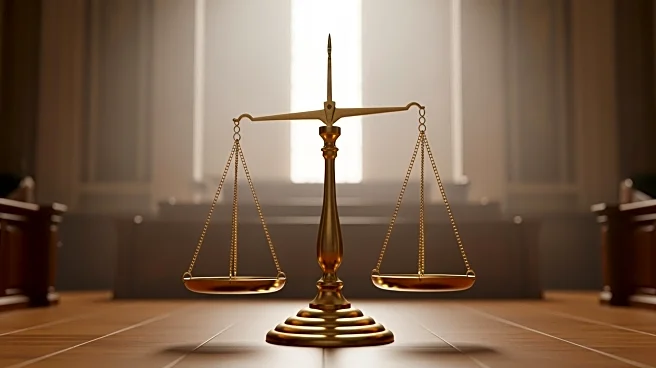What's Happening?
The U.S. Supreme Court is reviewing President Trump's use of the International Emergency Economic Powers Act to impose tariffs on imports from China and the European Union. The case, brought by companies affected by the tariffs, questions the legality
of Trump's executive orders under the emergency powers law. The administration argues that the tariffs are necessary to address unfair trade practices, while challengers claim that the president exceeded his authority. The court's decision could have significant implications for the scope of presidential power in trade policy.
Why It's Important?
The outcome of this case could redefine the balance of power between Congress and the presidency in regulating international trade. If the Supreme Court rules against Trump, it could lead to refunds of billions of dollars in tariff revenue collected under the contested policy. The case also highlights the broader debate over the limits of executive authority and the potential impact on U.S. trade relations. Businesses affected by the tariffs are closely watching the proceedings, as a ruling could affect their financial liabilities and future trade strategies.
What's Next?
The Supreme Court's decision is expected in the coming months, and it could set a precedent for how emergency powers are used in trade policy. If the court rules against Trump, businesses may seek refunds for tariffs paid, leading to complex legal and bureaucratic processes. The administration may also need to adjust its trade policies and strategies in response to the ruling. Stakeholders, including trade associations and policymakers, will be closely monitoring the court's decision and its implications for U.S. trade policy.
Beyond the Headlines
The case raises questions about the use of emergency powers in economic policy and the potential for executive overreach. It also highlights the challenges of balancing national security concerns with economic interests in trade policy. The decision could influence future administrations' approaches to using emergency powers in economic matters, potentially leading to legislative efforts to clarify the scope of such powers.
















